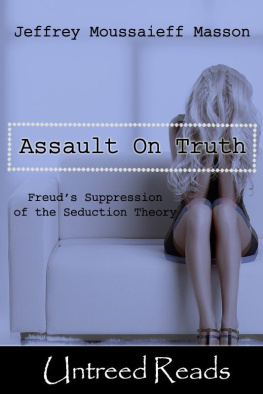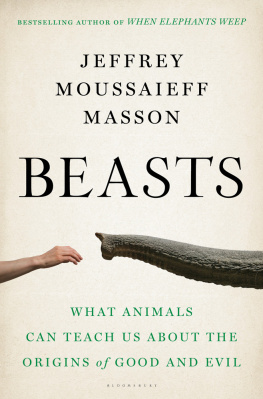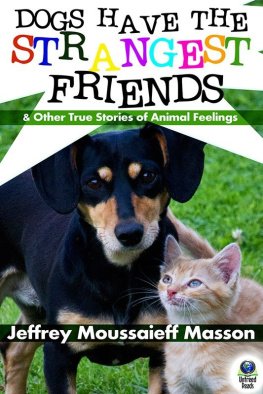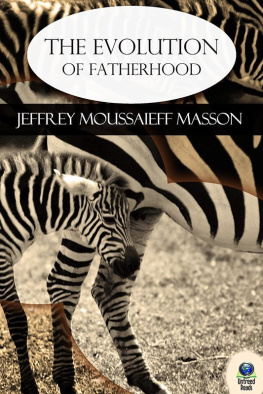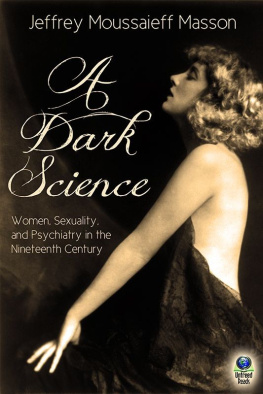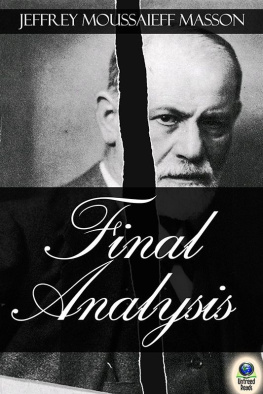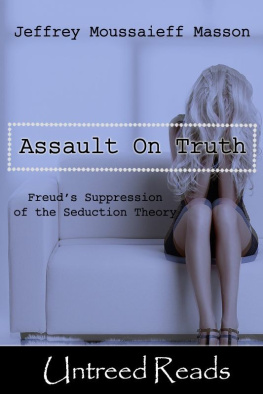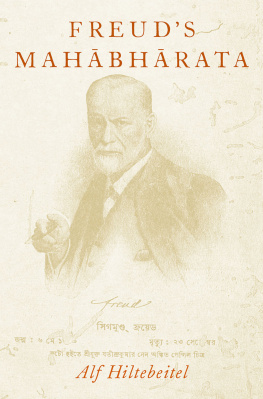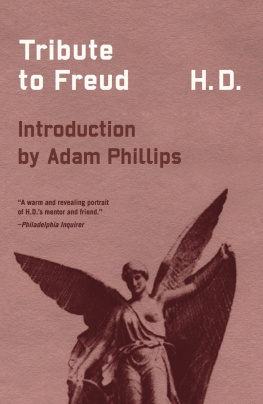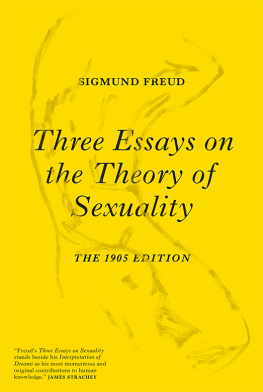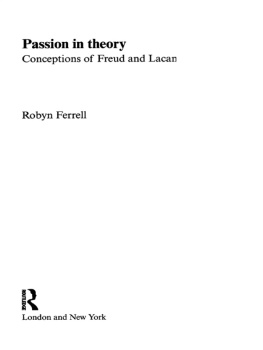
Table of Contents
The Assault on Truth
By Jeffrey Moussaieff Masson
Copyright 2012 by Jeffrey Moussaieff Masson
Cover Copyright 2012 by Ginny Glass and Untreed Reads Publishing
The author is hereby established as the sole holder of the copyright. Either the publisher (Untreed Reads) or author may enforce copyrights to the fullest extent.
Previously published in print, 1984, 1985, 1992, 1998, 2003 .
This ebook is licensed for your personal enjoyment only. This ebook may not be resold, reproduced or transmitted by any means in any form or given away to other people without specific permission from the author and/or publisher. If you would like to share this book with another person, please purchase an additional copy for each person you share it with. If youre reading this book and did not purchase it, or it was not purchased for your use only, then please return to your ebook retailer and purchase your own copy. Thank you for respecting the hard work of this author.
http://www.untreedreads.com
The Assault on Truth
By Jeffrey Moussaieff Masson
For Leila
ACKNOWLEDGMENTS
Because of the controversial nature of this book, many of the people who helped me in various ways may well wish their names had been omitted here. I can only stress that no one mentioned is any way responsible for my viewsthey are mine and mine alone.
Without the generosity of K. R. Eissler, Anna Freud, and Muriel Gardiner, this book would not have been possible. Through them I was given access to a vast storehouse of otherwise unavailable documents. Because the conclusions I reached on the basis of these documents were not such that they could share them with me, our original collaboration unfortunately came to an end. I remain deeply grateful, however, for their many acts of kindness.
Many of the views expressed in this book are the result of long conversations with my former wife, Terri Alter. She has a remarkable ability to see into the depths of things, and I profited enormously from her moral courage and intellectual brilliance.
Marianne Loring has been associated for many years now with my forthcoming edition of Freuds letters to Fliess. We read through every document together and translated them jointly. Her dedication to research and her personal friendship were an inspiration in the writing of this book.
Robert Goldman read the entire manuscript in several versions and brought to bear his unusual gifts and incisive thinking and made many invaluable suggestions. Over the many years of our friendship, spanning Poona, Toronto, and Berkeley, we have had long and fruitful discussions that enriched my intellectual life.
Sally Sutherland read the final draft closely; I value her perspicacity.
Gerhard Fichtner prepared a reliable transcript of the German text of the Freud/Fliess letters and also gave me the benefit of his wide knowledge of the history of medicine.
Lottie Newman was responsible for the first draft of the translation of the Freud/Fliess letters and gave me excellent advice on further drafts.
Mark Paterson of Sigmund Freud Copyrights has remained friendly through difficult times.
Nancy Miller, at Farrar, Straus and Giroux, with tact and great understanding, has suggested innumerable improvements and her enthusiasm never flagged. The book would have been very different without her help, and I am deeply grateful.
Edith Schipper of the Bayerische Staatsbibliothek in Munich graciously searched for obscure articles on my behalf. The staff of the Lane Medical Library at Stanford University, especially Mrs. B. Vadeboncoeur, were unfailingly courteous. The staff of the Bibliothque de la Morgue de Paris devoted an entire day to assisting me. Jill Duncan of the library at the London Institute of Psycho-Analysis was very helpful, as were the staff at the Health Sciences Library at Columbia University, where part of Freuds library is housed. For several years I borrowed many of Freuds books from the house in Maresfield Gardens, thanks to the generosity of Anna Freud. Hilde Lorentz was a superb and efficient typist.
I have received various grants for research on the forthcoming edition of the Freud/Fliess letters. Since the present book is a direct result of this research, I gratefully acknowledge the financial assistance I received from the New Land Foundation, the National Endowment for the Humanities, the National Institutes of Health (National Library of Medicine), and the Fund for Psychoanalytic Research of the American Psychoanalytic Association.
Finally, for the joy they gave me while I was writing this book, I want to thank Karima and Denise, and most of all my daughter, Simone.
Jeffrey Moussaieff Masson
Berkeley, California
May 5, 1983
PREFACE
Probably nobody would admit to indifference to human suffering. When we see another person in pain most of us want to do something to relieve that pain. So when I was teaching Sanskrit at the University of Toronto, I was struck by how useless such historical scholarship seemed to me in a world full of sorrow. Surely I could find some profession that was more able to reduce human misery.
Freudian psychoanalysis seemed just the thing. And so I entered an 8-year training program. It is no secret that after I finished my training and became a fully-fledged analyst, I was not happy with my new chosen profession (the profession was not very happy with me either as it turned out).
The stated goal of analysis was, it is true, to remove suffering. But the idea of doing that by merely talking, always struck me as somewhat strange and unlikely to achieve its stated goal. I was always impressed with Marxs epitaph for philosophy: The philosophers have only interpreted the world, in various ways; the point is to change it .
In response, psychologists argued that insight was the key. But whose insight? The analysts insight or understanding of a psychological dilemma might not match that of the patient. Sometimes they can be so discordant as to inhabit entirely different universes.
Case in point, as part of our training, we were taught that if a female patient described a memory of incest, we were to regard this as anything but a true memory: It could be a deliberate lie. It could be a self-deception. It could mask a wish for incest. It could be a delusion. It could be a false memory. It could be, in all its various forms, a mere fantasy. It could, in fact, be just about anything. The one thing it could not be, however, was a genuine memory.
We were taught, in our seminars, that sexual abuse memories, particularly if they involve father/daughter incest, are almost always a wish, an impulse, a fantasy. I found this odd, even unbelievable. But what did I know, compared to the wisdom of thousands of Freudian analysts over the last 100 years of clinical practice? So I was told to bide my time until I had the necessary experience behind me.
Instead, I decided to research the matter, since it was hardly a trivial one, involving as it did, the very deepest betrayal that any human can experience short of murder and torture that in fact it resembles.
The results of my research are to be found in this book. When I first published it in 1984 the book generated an enormous amount of controversy, some in favor (mainly feminists) but most against (mainly the healing profession of psychoanalysts, psychiatrists and psychologists). I have told the story of my own psychoanalytic education and subsequent downfall in Final Analysis: The Making and Unmaking of a Psychoanalyst . I continued my research and my skepticism about the very possibility of therapy deepened, in A Dark Science , and Against Therapy .
Next page
